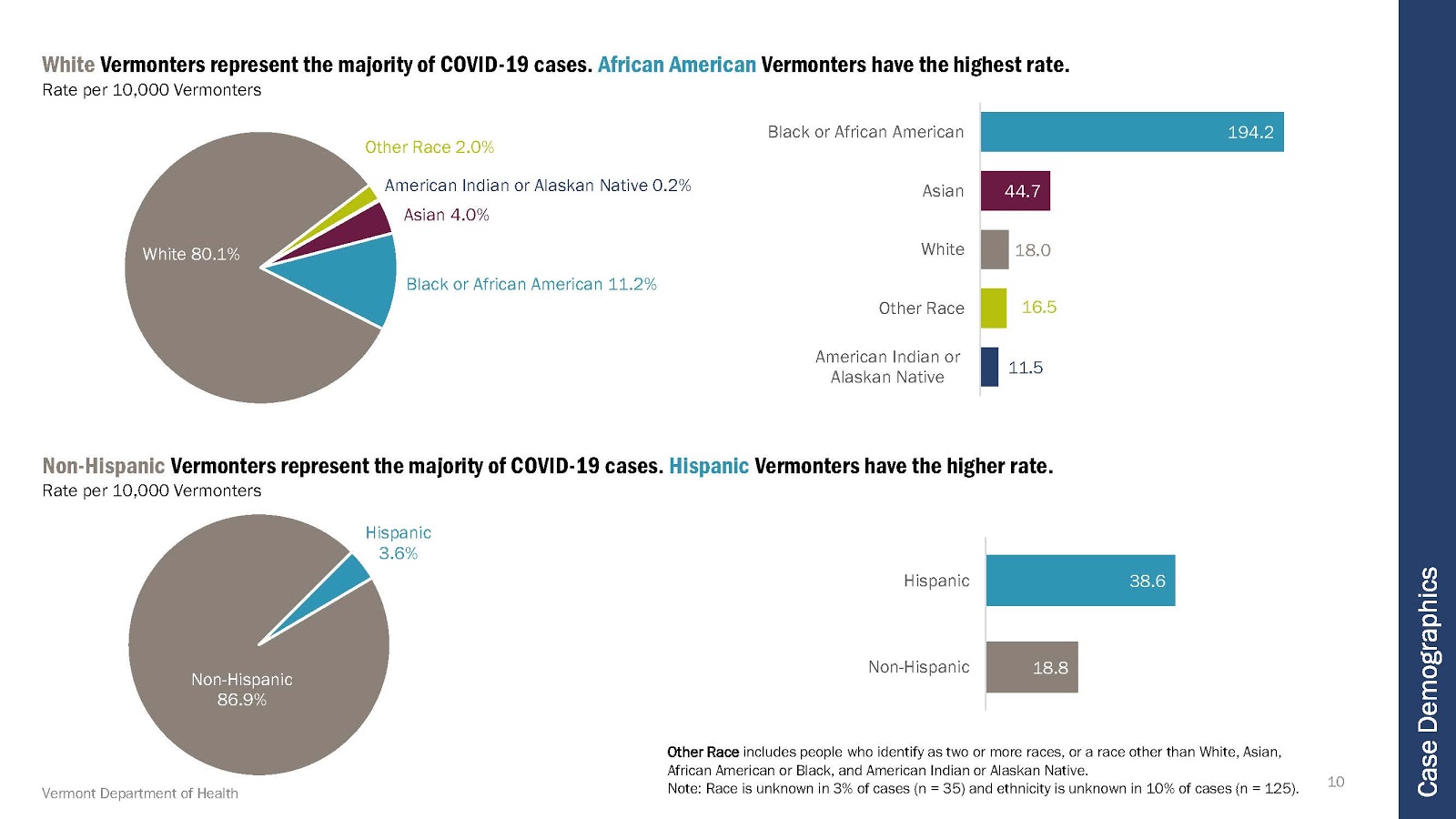New Data Shows Black Vermonters are 10x More Likely than White Vermonters to be Infected with COVID-19
Data recently released from the state clearly illustrates that racism is a public health crisis. COVID-19 does not spread evenly across racial lines due to long term, systemic health, social, and economic inequities. Black Vermonters are a whopping 10 times more likely to be infected with COVID-19 than white Vermonters.
This new data indicates that 11.2% of COVID-19 infections have impacted Black Vermonters, while only 1.4% of Vermonters identify as Black. While this disparity is shocking, it’s no shock to the folks who have been sounding the alarm on the many inequities in social determinants of health that have made BIPOC (‘Black, Indigenous, People of Color,’) Vermonters increasingly at risk of infection or worse due to COVID-19. These disparities include, but are not limited to, health care, housing, education, employment, criminal justice, and finances.
While Native Americans currently experience a low rate of COVID infection in the state of Vermont, nationally Indigenous Americans are experiencing some of the highest rate of COVID infections among any other group. In particular, in our neighboring state of New York, the Navajo Nation faces the highest per-capita COVID-19 infection rate nationwide.

Several weeks ago, alongside Mayor Weinberger of Burlington and more than 30 Chittenden County based organizations, we declared Racism a Public Health Emergency. As part of the declaration, participants announced a commitment to the sustained and deep work of eradicating racism within their organizations, immediate and specific actions that they are taking to address the emergency in the work that they do and a commitment to participate in ongoing joint action, grounded in science and data, to eliminate race-based health disparities and eradicate systemic racism in Chittenden County.
While the declaration of Racism as a Public Health Emergency in the city of Burlington was a big win, to truly eradicate race-based health disparities across the state, we will need ongoing joint action from individuals, state leaders, businesses, elected officials, and healthcare administrators in response to statewide systemic racism.
Organizations, businesses, and agencies must:
- implement a programmatic approach to eradicating systemic racism; and
- designate a person responsible for eradicating systemic racism, reporting to the chief executive; and
- provide sufficient data, policy, training and outreach support for the function of systemic racism mitigation; and
- undertake a comprehensive review of their practices of collecting high impact, high discretion, racially disaggregated data; and
- create data dashboards to enable management of progress; and
- implement a fairness and diversity policy; and
- conduct initial and ongoing systemic racism mitigation training;
- conduct racial impact assessments of all existing and emerging policy; and
- review hiring, appointment and promotion processes through a racial equity lens; and
- integrate systemic racism mitigation as an integral component of employee evaluation.
The Declaration of racism as a health emergency is a component of a larger strategy put forth by the Vermont Racial Justice Alliance referred to as Operation Phoenix R.I.S.E.
| Operation Phoenix Mission:
Transform the lives of black and brown people by investing in their lives, holding space for their culture, providing them opportunity and ensuring the equity they deserve to thrive. R.I.S.E. Restructuring Public Safety Implementing Cultural Empowerment Securing Equal Opportunity Expanding Racial Equity, Belonging and Inclusion #riseBTV #OperationPhoenix Contact us for recommendations on resources your organization can use to eradicate systemic racism. |
